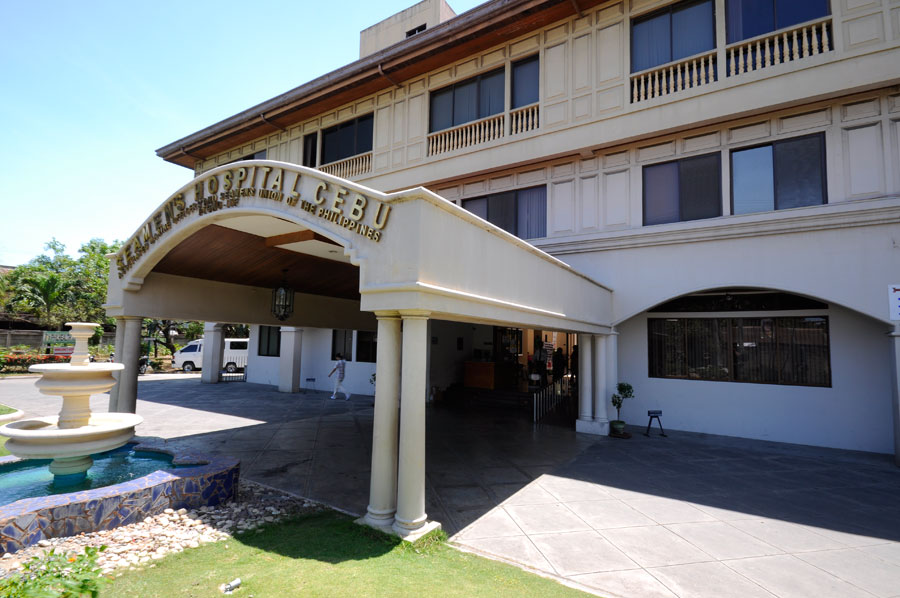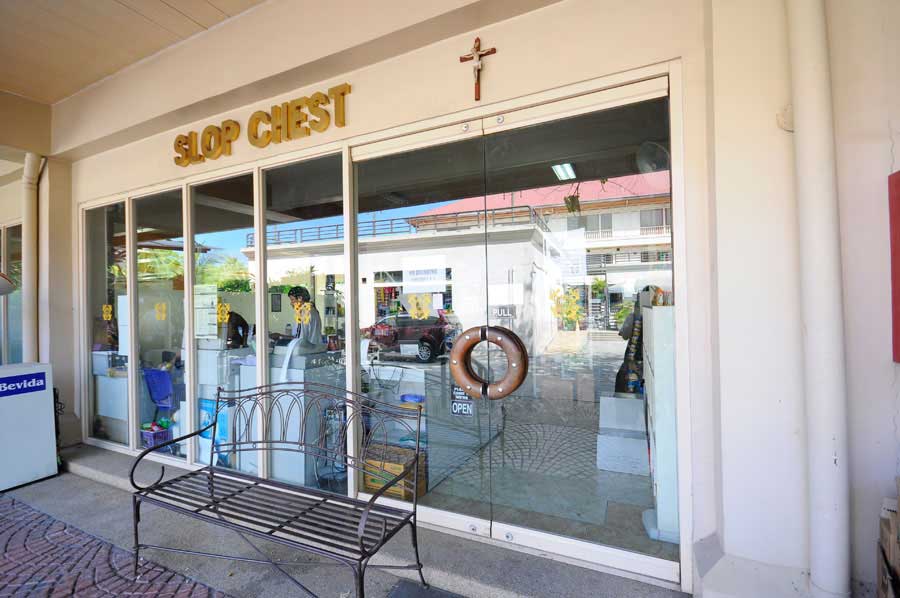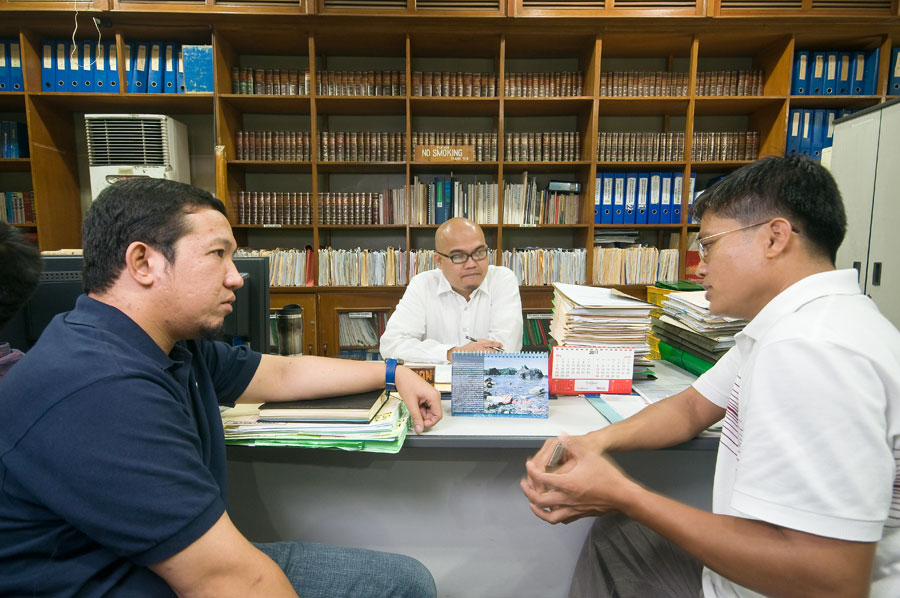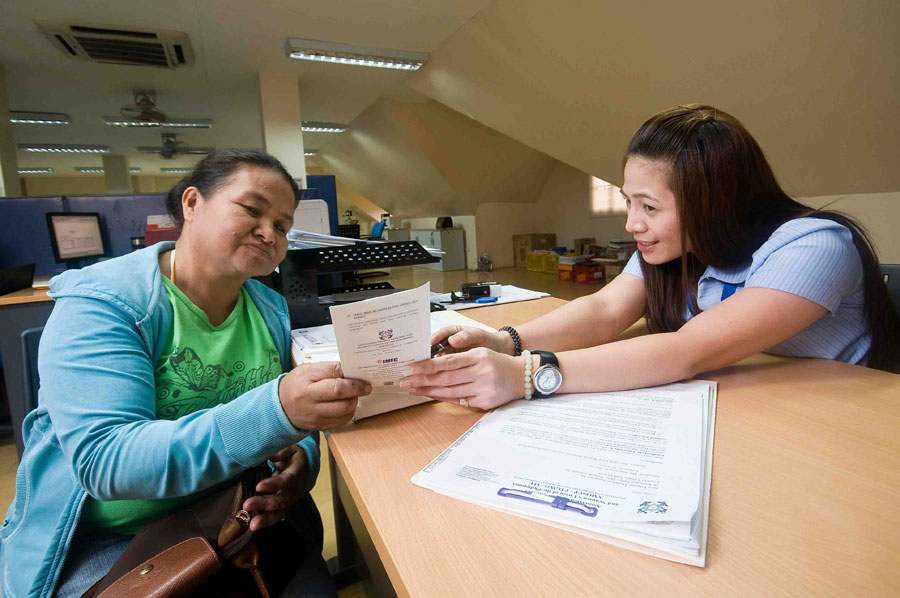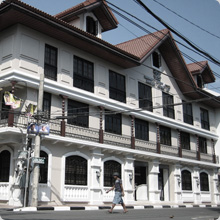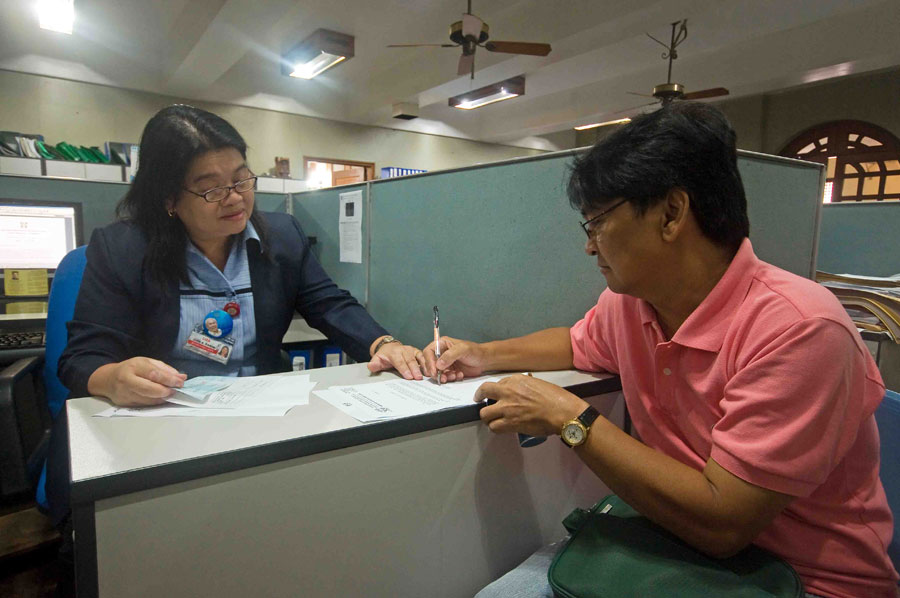Dr Oca and Vice Adm Santos highlight the required training seafarers need to transition
AMOSUP President Dr Conrado Oca and Executive Vice President VAdm Eduardo Santos led the union in celebrating the National Maritime Week, holding the annual kickoff ceremonies at the AMOSUP Convention Hall on 18th September 2022.
The celebration started with a Holy Mass thanking God for the safety of seafarers in the profession and wreath-laying ceremonies at the bust of Captain Gregorio Oca, AMOSUP founder and former president. Attending members also shared in a meal served at the union’s headquarters and Sailor’s Home in Intramuros, Manila.
With this year’s theme ‘New Technologies for Greener Shipping’, Dr Oca hinted this would mean further training as “we need to transition to alternative fuel that would not pollute our environment.”
But he said not to worry as the union, through its managed institution, the Maritime Academy of Asia and the Pacific (MAAP) will extend the needed exercises, knowledge and skills that would “lead us to transition into greener shipping,” Dr Oca stressed.
He told AMOSUP members: “Hindi tayo mapag-iiwanan ng kung sino lang d’yan.” (We will not be left behind by anyone.”) We are now investing further in education and training” through MAAP. Vice Adm Santos, MAAP president, said the objective of the IMO is to decarbonise shipping. But he noted that not all the noxious gases come from shipping. However, “we are trying our best to lessen the exhaust from ships.”
“Nag umpisa na ang industriya d’yan dahil sa mga scrubber sa smoke stack na naka install sa mga barko upang mabawasan ang mga lumalabas na sulfur oxide sanhi ng fuel. Maliban d’yan may mga dagdag pa dahil sa paghihigpit na kailangang ibaba ang carbon emission sa ating atmosphere,” VAdm Santos said.
(The industry has begun with the scrubbers that were installed on ships to lessen the emission of sulfur oxide due to fuel. Apart from this, there are added restrictions put in place to lessen carbon emissions in our atmosphere.)
“May pagpapalit nga lang ng fuel kasunod ng makina. Tayong mga nasa barko this means kailangang matuto o turuan tayo sa pagpapalit na ito.”
(There’s the change in fuel, then the changes in engine follow suit. For us on board the ship, this means we need to learn or re-train for these changes.) Such as those low temperature gas na kahit hindi mainit aapoy na. (that ignites even in lower temperatures) using the LNG fuel, he cited.
As an example, Vice Adm Santos stressed the move of a Danish container carrier that placed orders for 14 newbuildings that will run in methanol fuel. He said their fuel tanks will do away with crude oil and will operate with those capsuleshaped [tanks] as owners and operators need to have facilities that will load this fuel safely, especially when storing onboard ships.
“We have started holding training in the AMOSUP Seamen’s Centre. Two classrooms at the PCDC have been reserved for it. MAAP will now takeover PDOS (pre departure orientation seminar) and training,” he emphasised, saying MAAP has also begun audio visual presentations about the new electronic engines.
“We need to prepare for the maritime autonomous surface ship. At MAAP remote control simulator will be used,” Vice Adm Santos added.
The union, being part of the service chain of the maritime industry, is needed in this education and training for shipping.
“Hindi totoo na kapag autonomous shipping na ay mawawala na ang tao upang tumakbo ang barko. Marami pang trabaho ang mapupuntahan at ang mga ’yan ay ituturo ng MAAP. Pukpok din po ang training sa mga cadete sa MAAP,” he added. ( It is not true that seafarers will lose jobs in autonomous shipping. There will still be job opportunities and we ensure that we equip our cadets in MAAP. They are being trained rigorously.) He told the seafarers: “Maghahanap tayo kung ano ang nararapat sa inyo at ibibigay ang training sa pagtutuloy ng mga trabaho.
Kailangan nating mag aral at matuto pa. Sa mga seafarers, MAAP is preparing modules. Maganda pa rin ang hinaharap ng pagiging mandaragat. Magsikap lang tayo at huwag bibitaw. At pag bumitaw tayo, may kukuha.”
(We will look for what suits you and will provide the training for continuous employment. We need to study and to learn further. For the seafarers… There is still a bright future. We just need to work hard and to hold on. And if we let it go, someone is there to take it.)”

